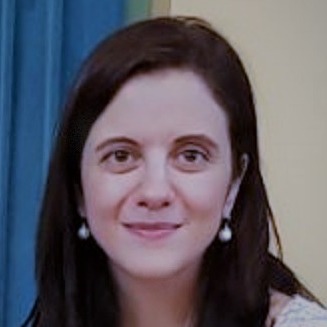Health, Work and their Relationships
Whose mental health declines during economic downturns?
Summary: Prior research shows that economic downturns are associated with increases in mental illness. However, we know little about whose mental health is most negatively affected. Is it the young or old, men or women, employed or non-employed, rich or poor? Using an 18-year panel dataset of Australians, we contribute to this understanding by estimating the impact of changes in unemployment on mental health, separately by population subgroups.

Presenter: Associate Professor Nicole Black (Monash University)
Nicole Black is an Associate Professor at the Centre for Health Economics, Monash University. She currently holds an Australian Research Council (ARC) Discovery Early Career Researcher Award (DECRA). A key focus of her research is to investigate the role of children’s time investments in reducing inequalities in children’s cognitive development, emotional wellbeing and mental health. She is also a chief investigator on an ARC Discovery Research Project, which aims to investigate the socioeconomic inequalities in access to mental healthcare in Australia. She is currently on the editorial board of the peer-reviewed journal, Health Economics. Nicole's research interests include child health and development, economics of mental health, economics of obesity, and measurement issues in health and wellbeing.
Changes in job control and perceptions of general health: A longitudinal analysis of Australian workers, 2005-2017
Summary: This study investigates the relationship between changes of job control and perceptions of general health. There has been much research into the effect of poor psychosocial working conditions including job control on physical and mental health, yet barriers to making causal interpretations into the effect of job control on physical and mental health persist and the effect of cumulative exposure to low job control on health is not well known. I explored the causal relationship between job control and general health using data from the HILDA survey through triangulation, using three complementary longitudinal modelling approaches.

Presenter: Dr Yamna Taouk (The University of Melbourne)
Dr Yamna Taouk is a postdoctoral research fellow at the Disability and Health Unit, Centre for Health Equity at the University of Melbourne. Her research addresses health service use among employed men at risk of mental health problems and suicide, with a focus on the social determinants of mental health and suicide, and the working environment. Yamna recently completed a PhD at the University of Melbourne which examined the relationship between common psychosocial work stressors, ill-health and mortality. The findings of her thesis add to the evidence that exposure to adverse psychosocial work stressors is detrimental to health and wellbeing. Yamna has extensive experience in quantitative research and observational data, using strong analytical skills to apply innovative statistical and epidemiological methods to address health-related issues across the population.
Jobless parents, unhealthy children? How past exposure to parental joblessness relates to children’s future health
Summary: A growing number of studies document the adverse effects of parental joblessness on children’s contemporaneous or short-term health outcomes, but rarely has any study investigated whether the consequences of parental joblessness for their children’s general and mental health are long lasting. We address this by gap by using longitudinal data from 19 waves of the Household, Income and Labour Dynamics in Australia (HILDA) Survey (N = 2,888 individuals and 23,032 person-year observations) and examine how the intensity of parental joblessness during a seven-year period (2001-2007) in childhood and adolescence (ages 5-17) influences children’s mental and health outcomes seven years later (2008-2019) when children reach (young) adulthood (during their 20s and early 30s). We also examine whether family resources, time inputs and family harmony mediate the relationship between parental joblessness and children’s health.

Presenter: Associate Professor Irma Mooi-Reci (The University of Melbourne)
Irma Mooi-Reci is a leading expert on labour market research and life course dynamics. She is internationally known for her work on the socio-economic consequences of employment instability, unemployment and joblessness for workers and their families. Irma's work has been recognised through various prizes, grants and visiting fellowships, including visiting positions at the Nuffield College, Oxford University (2017) and University of Madison, Wisconsin in 2010, 2011 and 2012. Upcoming visiting fellowships will take her to Collegio Carlo Alberto at University of Torino in Turin, Italy (2022), and to the Federal Institute for Population Research in Wiesbaden, Germany (2022 and 2023).